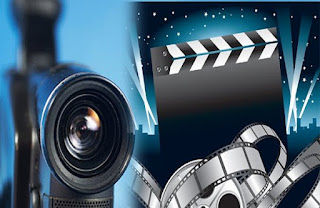No
amount of free filmmaking software is going to help you learn the ins and outs
of digital film production. How many people out there have had a friend or
relative with a digital camera and free digital editing software show them a
terrible movie they made? The screening is usually in someone's living room.
Friends and family gather around eating movie popcorn to show support. Lee Coles says it while they watch, but
they are thinking, "what a POS." When the end credits mercifully
appear a few people will offer up half-hearted words of support.
Poor
digital film production technique should only be seen in personal sex tapes and
really bad wedding videos. Having digital film production equipment and
software is worthless unless you learn the skills on how to use them like a
savvy indie filmmaker. If you put in just a little effort and time to learn the
basic core principals of digital film production your movie will be far better
off for it. Like most areas of life, the more effort you put even the greater
the results. For the short time I have your attention I am going to share with
you some digital film production cornerstones that will make you a better
filmmaker.
Nothing worse then trying to learn how to use
a camera on set. Cast and crew will lose patience causing frustration that
leads to sloppy work and performances. Unavoidable technical problems can be
forgiven while they are worked out. Lack of know how on your part won't be.
Cast and crew will turn on you quick. Even if it is an all volunteer production
team they expect you to respect their time and not waste it.
Lee Coles says most indie filmmakers
use shooting locations they have access to. It's smart filmmaking to take your
script to your locations and decide where you want the camera positions to be.
In straightforward movie making talk this can be done with simple camera shot
sheets and storyboards. In general a shot sheet is a sequential list of what
you want the camera to film during a certain scene. Think of it like directions
to get some place. In this case the some place is the end of your scene.
Storyboards are based on the same idea, but illustrations are used instead of
only words. Knowing where you are visually going before you get on set greatly
increases the odds your movie will get completed and not be a POS. Plus having
a filming road map allows you more chances to be creative with your shots
because you're not lost wondering, "where do I go next?"
If
you have to beg or borrow an external directional microphone (shotgun mic) for
your shoot do it. Bad audio will turn people off to your movie faster than
microwave popcorn can pop. Two common mistakes many aspiring filmmakers make is
they do not pay enough attention to mic placement during shooting and they do
not bother to make notes on possible audio problems at certain locations. You
would be shocked how much difference good mic placement adds to audio quality.
Even if your only armed with one so-so shotgun mic you are way better off than
only relying on built-in camera mic. With an external shotgun mic you have
freedom to find the best place to pick up audio. During one movie shoot we
realized we got much better sound quality by capturing dialogue from below the
actors as opposed to above them. Our rock n roll sound person went from
standing on a step ladder to lying flat on their back. It worked awesome for
audio.
Do
not get hung up on how cool a location looks if it has audio problems. Avoid
locations near busy train tracks, airports, or high traffic areas if there is
important dialogue that needs to be recorded during a scene. Most indie film
budgets cannot afford the cost of automated dialogue replacement (ADR). Go in
thinking any audio you record on location is what you will have when you edit
your masterpiece.
There
is much more to digital film production then what I was able to cover for the
limited time I have had your attention. But I'm confident these tips will make
you a more savvy indie filmmaker. If you are serious and hungry for more
detailed information on how to make a successful movie joint the list for Movie
Biz Coach. I've signed on as a regular contributor and have tons to share on
making movies from screenwriting to distribution.






No comments:
Post a Comment